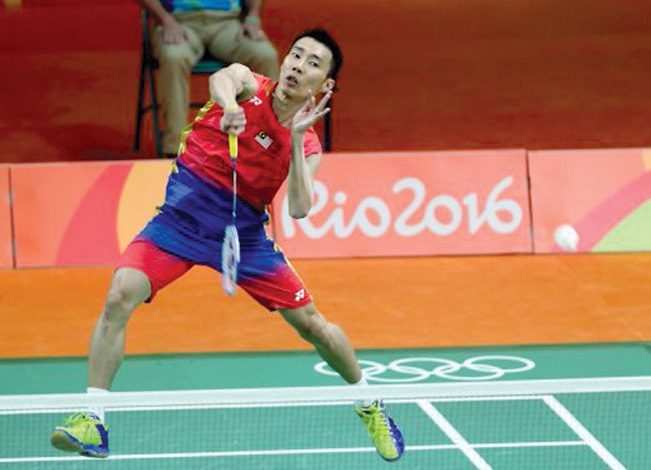

By Fathol Zaman Bukhari
The recently concluded 2016 Summer Olympics or Rio 2016, the 31st in the Olympiad series was a major international sporting event held in Rio de Janeiro, Brazil, from August 5 to 21.
Over 11,000 athletes from 207 member countries of IOC (International Olympic Committee), including first-time entrants Kosovo, South Sudan, and the Refugee Olympic Team, took part. With 306 sets of medals, the Games featured 28 sports, including rugby sevens and golf introduced in 2009.
Rio de Janeiro was nominated as host city at the IOC meeting in Copenhagen, Denmark, on October 2, 2009. It became the first South American city to host the Summer Olympics and the first in a Portuguese-speaking country. Among its other firsts were – first in the Southern Hemisphere after Sydney in 2000 and the first Games under the IOC presidency of Thomas Bach.
The lead-up to the Games was marked by controversies, such as the instability of the country’s government; health and safety concerns surrounding the Zika virus, pollution in the Guanabara Bay and a doping scandal involving Russia, which resulted in a large number of its athletes being barred from the Games.
The United States topped the medal table winning a mind-boggling 121 medals of all colours. Great Britain finished second and the People’s Republic of China, third. Host Brazil won seven gold medals. Neighbour Singapore and Asean member Vietnam won a gold medal each, a feat Malaysia has yet to achieve since it first participated as an independent nation at the 1960 Rome Olympics. Even obscure Fiji, Kosovo, Puerto Rico and Tajikistan won one gold medal each.
United States of America had, thus far, amassed a total of 1000 gold medals. And being an ardent fan of the Olympics I had lost count the number of times the Star-Spangled Banner, the national anthem of USA, was played when its athletes stood on the podium to receive their gold medals. Our national anthem, Negara-ku, has yet to be heard in any Olympics. My hopes of hearing our national anthem, and seeing our Jalur Gemilang raised, were dashed when gold-medal aspirant, Lee Chong Wei was beaten in straight sets by China’s Cheng Long in the men’s badminton single finals. With that, the hopes of 30 million Malaysians too vanished.
Badminton, due to its popularity, has a huge following in Malaya and after September 1961, Malaysia. I can still recall with clarity the mood when then Malaya won the Thomas Cup in 1955 beating Denmark 8-1 only to lose to Indonesia 6-3 in 1958. Players like Wong Peng Soon, Ooi Teik Hock, Ong Poh Lim and the lone Malay player, Abdullah Piruz were the toast of the nation. Indonesia’s Ferry Sonneville and Tan Joe Hock were the nemesis.
Every little kid, including yours truly, wanted to be a Wong Peng Soon wannabe. We formed a kampong badminton team comprising of village kids old enough to hold a racquet fashioned out of wood. A simple stringed racquet cost a princely RM3 then, a price few could afford. So a wooden racquet was a good-enough alternative. An open space behind my grand uncle’s house was converted into a makeshift court. A badminton-loving uncle gave us his oft-used net with many holes. We used worn-out shuttlecocks as a new piece cost 30 cents each, out of our reach too.
That was how we played the game in the mid-1950s and went on to win the village championship. There were no monetary rewards, no medals and no nothing. We played for the love of the game. It is different today. Medal winners in international and regional games are paid handsomely so the motivation to succeed is there. But why do we produce so few winners and have to depend on senior players to bring us fame and recognition?
Joseph Schooling, whose mother is from Ipoh, won for Singapore what many of the island nation’s naturalised Chinese athletes could not. But in spite of his talents Schooling was never taken seriously until he won an Olympic swimming gold beating his sifu, Michael Phelps and breaking the men’s 100m butterfly record in the process.
Malaysia has many talented sportsmen and sportswomen. However, if they are never nurtured they will soon sink into oblivion. Malacca-born sprinter Khairul Hafiz Jantan is only 18 yet he ran the 100 metres in a record-shattering 10.18 seconds. High jumper Nauraj Singh has cleared a world-class height of 2.29 metres (7ft 6in) and was among the top finishers at Rio. These athletes must be part of Khairy Jamaluddin’s “Podium Programme” initiated for the sole purpose of winning gold at the Tokyo Olympics in 2020.
My fervent hope is that this much-touted “Podium Programme” will not turn into another non-starter like many similar programmes had in the past. If cash reward is the mantra so be it. After all “Cash is King” in Malaysia.


